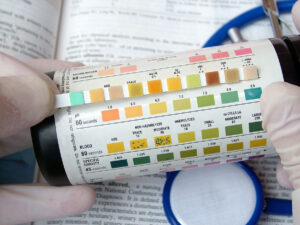How to understand the laws and create your own drug and alcohol testing policy
Drug and alcohol policy vary by company — but being under the influence can have added dangers in industries such as construction and manufacturing.
That’s why it’s important for employers to know where they stand when it comes to testing and enforcing the consequences.
1. State and local laws may differ
Each state has its own drug and alcohol testing laws, but different cities and jurisdictions may have their own regulations.
This can include regulation on the following:
- What types of tests can be conducted
- What drugs can be tested for
- The requirements for notifying employees of positive test results
- Disciplinary actions for testing positive
2. Laws and policies can differ by occupation
For example, the U.S. Department of Transportation has an understandably rigorous testing policy.
However, this only applies to a specific group of employees. It is a mistake for employers to believe they can apply it to everyone in their organization, as non-DOT-regulated employees are governed by applicable state and local laws.
It’s important to understand the laws that apply to specific positions. Some state and local testing laws allow distressed employees the right to sue their employers for financial remedy.
3. Have a written policy
Some states do not have their own drug testing laws, which means employers may not have any set testing policy.
No matter where you are located, it’s a good idea to have a written testing policy. This should outline the types of testing that are required, conduct that is prohibited, and what the consequences are for refusing to test or testing positive.
This will greatly help your company in the event of litigation.
4. Make your policy specific
It doesn’t do much good to say that the company will perform drug and alcohol testing “at its discretion.”
It’s important to outline the points mentioned above.
5. Standardized disciplinary action
It may seem reasonable to decide disciplinary action on a case by case basis.
However, employees may end up favoring long-term employees over others. This practice may lead to a potential discrimination lawsuit.
6. Conduct reasonable suspicion tests immediately
Remember that alcohol metabolizes quickly, so you only have a limited time frame of up to eight (8) hours to perform testing.
Reasonable suspicion for drug testing has a bit longer, typically between 24 and 32 hours.
7. Don’t fall for excuses
It may be true that your employee had a bad night’s sleep, is adjusting to new medication, or is going through a personal difficulty.
However, if your employee is acting as if they are impaired by drugs or alcohol — testing should occur regardless of reasoning.
8. Train your supervisors
Once you have established your testing policy, make sure all supervisors are trained.
Often, supervisors will assume that it is not their responsibility if they haven’t received training. Host a session where you can explain and answer questions on reasonable suspicion and decision making.
9. Understand “refusing to test”
Most drug and alcohol policies state that if an employee refuses to be tested, they will be automatically terminated.
However, employees may find ways around this rule by trying to delay or evade testing. There are a variety of behaviors that can qualify as “refusing to test” and should lead to termination.
10. Understand “reasonable possibility” in post-accident testing
Recently, OSHA stated that employees should only be tested after an accident is there is a “reasonable possibility” that drugs or alcohol could have contributed to the event.
Accidents resulting from allergic reactions, stress injuries, pre-existing conditions, among other things are not grounds for testing.
Go Mobile with Your Drug & Alcohol Testing
Off-site drug testing is unproductive and can lead to added risks.
In most cases, OSHA requires medical surveillance testing, and at no cost to employees.
Worksite Medical makes that program easier with mobile medical testing.
We conduct on-site respirator fit tests, as well as audiometric exams, pulmonary function tests and heavy metal lab work, right on your job site. We also keep accurate, easy-to-access medical records for your convenience. You’ll keep your employees at work, and stay ahead of OSHA inspections.
With Worksite Medical, a mobile medical testing unit — we can bring all the resources of a lab to you. Our certified lab technicians can perform both qualitative and quantitative respirator tests to ensure a perfect fit.
Protect your team and your workplace now with Worksite Medical. Not sure what you need? Try our medical testing wizard here.
Give us a call at 1-844-622-8633, or complete the form below to schedule an on-site visit or to get your free quote!




